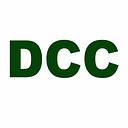Decentralized Solid Waste Management (DSWM) is a system to offer easy surroundings and hygienic dwelling situations with the aid of using lowering the amount of waste at the source. It entails the control of municipal stable waste with the aid of using diverse small waste control centers inside the locality. Such centers are referred to as Integrated Resource Recovery Centres (IRRC) which may be both earnings-making and not-for-earnings agencies engaged in collecting, transporting and processing around 2 to twenty metric heaps of waste from the locality.
The decentralized gadget isn’t always the best sustainable and financially feasible however additionally allows for enhancing the exceptional lifestyles and operating situations of the waste pickers. Decentralized or at-supply segregation and remedy of waste have grown to be the maximum sensible and desirable answers to the risk of garbage. Many bulk waste mills consisting of massive industries, hotels, IT companies and a few forward-searching municipal companies have started adopting numerous decentralized waste control answers as part of their typical waste control strategies. Decentralized natural Solid Waste (SW) composting promotes inexperienced growth, reduces GHG emissions and additionally reduces the transportation of natural SW to waste.
Growth of the populace and urbanization has given a lift to Municipal solid waste generation in India. Municipal businesses in the course of the United States are going through issues to enhance the gathering performance of waste and subsequently, deal with and put off the tonnes of waste generated daily. The decentralization of solid waste management should show power in coping with such issues. The waste generated in India has extra than 40 % of biodegradable natural matter.
The current strategies of composting and bio meth nation with several adjustments with the aid of using researchers have proved powerful with inside the remedy of such wastes and bring first-quality products, compost and biome thane which may be used in addition to enhance soil first-rate and update gasoline respectively. This paper is a case to take a look at those strategies at a decentralized degree to research their feasibility and gift their applicability. The effects display that composting the use of windrows is appropriate in phrases of location requirement and nuisance created and produces 0.179 kg of manure/ kg of meals waste of first-rate as encouraged with the aid of using numerous researchers and Fertilizer manipulation orders. A pilot plant for biomethanation is likewise designed and operated primarily based totally on tips with the aid of using researchers to provide biogas
Material Recovery Facility (MRF)
MRF is a vital part of a successful waste management system which now no longer best is capable of extracting precious fabric out of waste but additionally reduces the waste going into landfills. One of the obligations of the Urban Local Bodies in India, as highlighted through SWM Rules 2016 is putting in of substances healing facility (MRF) or enough area for sorting recyclable substances to permit casual or legal waste pickers and waste creditors to split recyclables from the waste and offer clean get admission to waste pickers and recyclers for series of segregated recyclable waste inclusive of paper, plastic, metal, glass, fabric from the supply of technology or from fabric healing facilities.
Content Source: https://zerowasterecycler.wordpress.com/2022/11/01/decentralized-municipal-solid-waste-management-in-india/
